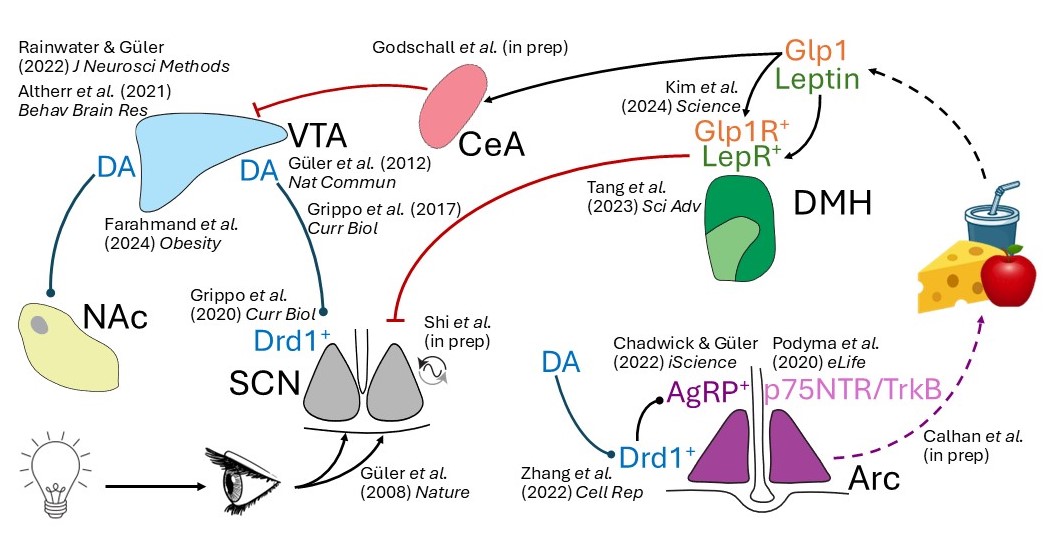How does your brain control what you eat?

Modern societal stresses, such as artificial lighting and constant food availability, place significant strain on our ancient brain circuitry. This contributes to the rising prevalence of various pathologies, including metabolic disorders (obesity, type 2 diabetes, cardiovascular diseases), neurodegenerative diseases (Alzheimer's, Parkinson's), and certain cancers. My laboratory aims to uncover how external cues like food and light affect health. While the neuronal pathways governing goal-directed behaviors are well-studied, the influence of external factors such as food availability, social interactions, and exercise on these pathways remains largely unexplored. For instance, in a recent breakthrough, we identified a neuronal connection between midbrain dopaminergic neurons that are activated in response to salient rewarding events and circadian clock neurons that express the dopamine receptor. We showed that this pathway accelerates recovery from jet-lag and drives excessive snacking. In parallel, we identified a novel molecular player that is necessary for anticipation of time-restricted food access. Now, we are leveraging our expertise in disentangling these neurocircuits to determine methods to ameliorate symptoms of diet-induced metabolic disorders or Alzheimer’s disease. Additionally, we are investigating the neuronal pathways affected by next-generation GLP-1 mimetic weight-loss drugs. Our research seeks to unravel the connections between external cues, physiology, and behavior, while offering practical strategies to combat the negative impacts of modern living.